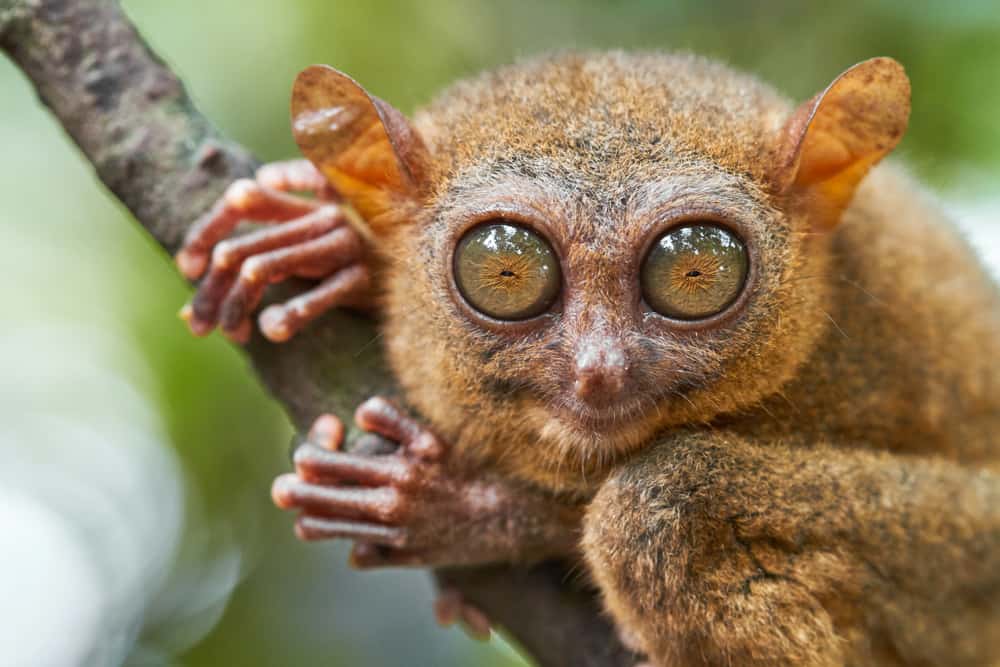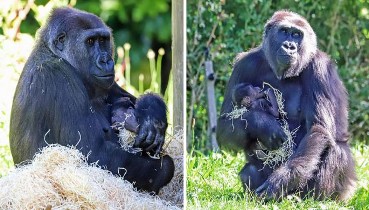
Astounding Facts About Primates that Never Cease to Amaze
11. Primates are mostly omnivorous.
You may be all too familiar with the idea of a chimpanzee eating a banana, and there is no question that chimpanzees, alongside other primates, eat a lot of fruit. Researchers who train monkeys generally give them fruit as a reward (similarly to how dog owners give treats as a reward for following commands). Most primates, however, are not strict vegetarians; they are omnivorous, feasting on whatever fruits, leaves, insects, small lizards, and even small mammals they can catch. Tarsiers are the only entirely carnivorous primates, while some lemurs, howler monkeys, and marmosets are complete vegetarians.
Unfortunately, some primates can find themselves as prey instead of predators. Lions, cougars, and jaguars often like to snack on our dear primates! Primates who live outside their groups are the most prone to becoming dinner to a larger animal, while those who remain inside their groups — even when they are at the bottom rung of the social ladder — have the best chance of staying alive. With many different members looking out for each other, they can spot a predator before an attack can be made. Some groups even have watchers who stand watch for predators while the others take a nap, enjoy a meal, or play with each other.
You may be all too familiar with the idea of a chimpanzee eating a banana, and there is no question that chimpanzees, alongside other primates, eat a lot of fruit. Researchers who train monkeys generally give them fruit as a reward (similarly to how dog owners give treats as a reward for following commands). Most primates, however, are not strict vegetarians; they are omnivorous, feasting on whatever fruits, leaves, insects, small lizards, and even small mammals they can catch. Tarsiers are the only entirely carnivorous primates, while some lemurs, howler monkeys, and marmosets are complete vegetarians.
Unfortunately, some primates can find themselves as prey instead of predators. Lions, cougars, and jaguars often like to snack on our dear primates! Primates who live outside their groups are the most prone to becoming dinner to a larger animal, while those who remain inside their groups — even when they are at the bottom rung of the social ladder — have the best chance of staying alive. With many different members looking out for each other, they can spot a predator before an attack can be made. Some groups even have watchers who stand watch for predators while the others take a nap, enjoy a meal, or play with each other.
Advertisements
13 September 2022
Advertisements



